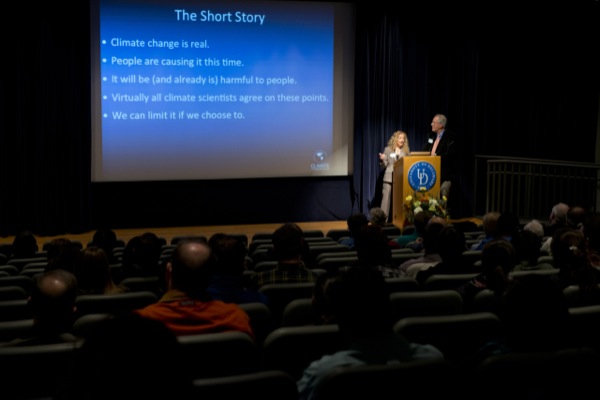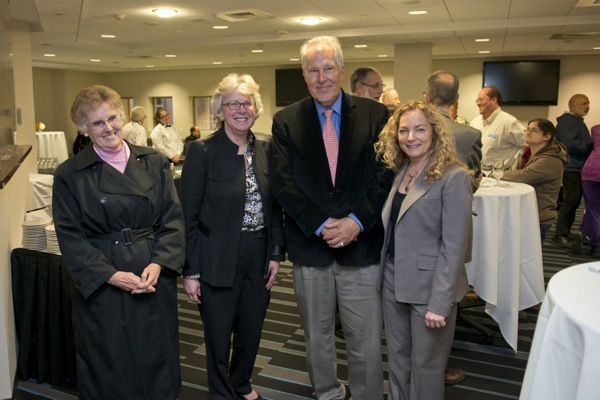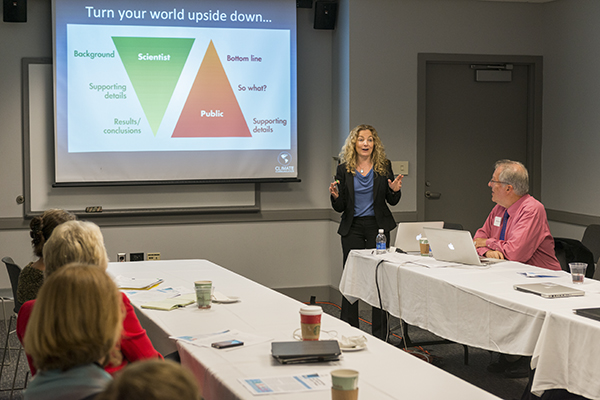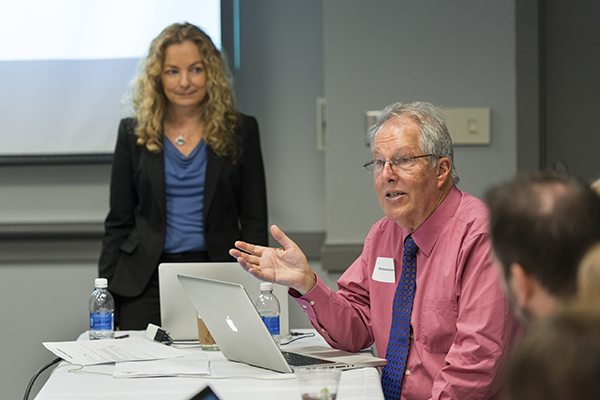

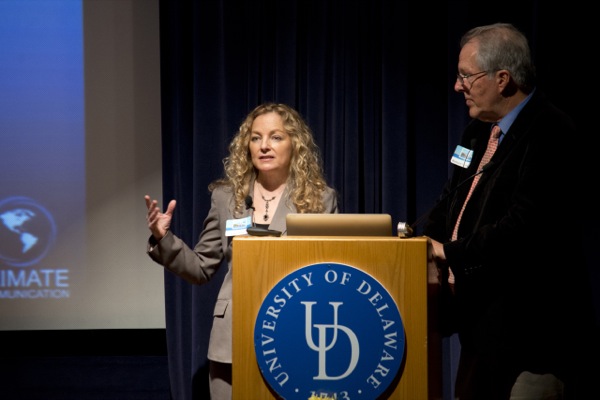
Communicating climate change
Climate change experts provide scientists, educators communication tips
11:07 a.m., Dec. 2, 2013--In conversations about climate change, two different worlds tend to emerge: the scientific community and public opinion.
Economic worries and disinformation campaigns can widen the rift between the two, taking attention away from scientific findings, argued Richard Somerville and Susan Hassol of Climate Communication at the fourth annual John R. Mather Visiting Scholars Lecture held Nov. 7 at UD.
Campus Stories
From graduates, faculty
Doctoral hooding
Yet the gap can be bridged, they said.
“The solution isn’t that difficult,” Hassol said. “The key is to provide simple, clear messages, repeated often, from a variety of reliable sources.”
Hassol and Somerville emphasized that man-made climate change is a real threat, yet scientists struggle to effectively convey this information to the public. Only 39 percent of the public believes that scientists think global warming is an issue, compared with 97 percent of scientists publishing in the field who agree that the earth’s climate is warming and the trend in human-induced.
Hassol and Somerville encourage scientists, educators and communicators to change how they explain climate change to better appeal to audiences. Simple, clear messages are the most effective, they said.
“To put it in 10 words: It’s real. It’s us. It’s bad. Scientists agree. There’s hope,” Hassol said.
Hassol and Somerville said one obstacle to their work on communicating the science of climate change is an active disinformation campaign — comparable to one run in the past by tobacco companies — that seeks to sow doubts about scientific findings. Climate change has been changed into a political issue, they said, in which people’s beliefs have more impact than scientific data.
Hassol and Somerville also pointed out that public disagreement about climate change is contributing to the United States falling behind in technology and renewable energy. They said Germany and other countries that have made considerable advances in renewable energy innovation.
“Change needs to happen now,” Hassol said. “Are we going to join the race with other countries?”
The audience was welcomed to the lecture by Nancy Targett, dean of the College of Earth, Ocean, and Environment, and Tracy DeLiberty, chair of the Department of Geography.
While on campus, Hassol and Somerville also conducted two workshops with teachers and science educators. The workshops were supported by the Maryland-Delaware Climate Change Education, Assessment, and Research (MADE CLEAR) partnership, led by the University System of Maryland and University of Delaware, which brings together climate scientists, formal and informal educators and education researchers to develop the best approaches for teaching climate change in and out of the classroom.
About the series
The John R. Mather Visiting Scholars Lecture honors the memory of John (Russ) Mather, UD professor of geography from 1963 to 2003 and Department of Geography chair from 1966 to 1989. Sandra F. Mather established the lectureship to honor her late husband and enable the department to host well-known scholars for the active exchange of ideas related to his broad interests in climatology and geography.
Article by Andrew Cooper
Photos by Lane McLaughlin and Evan Krape




